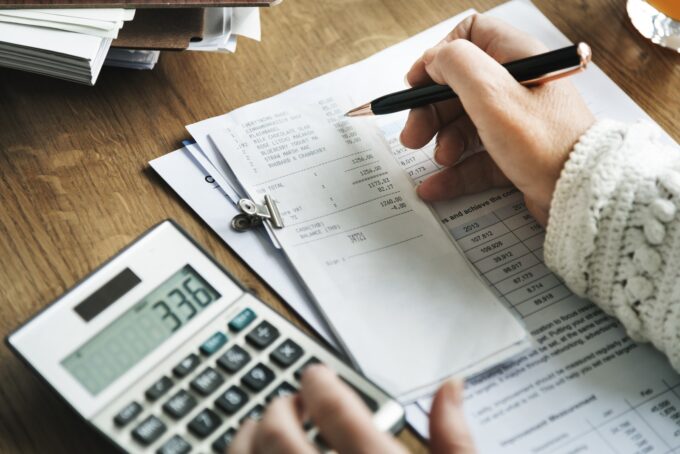In general discussions, all accounting jobs tend to be thought of as fairly similar, and those outside the field rarely understand the nuances of different jobs within the industry. In reality, however, there are critical distinctions between the three core roles of bookkeeper, accountant, and CPA – and at a professional level, they require different skills and training. Whether you hope to rise through the ranks yourself or are looking to hire the right person for a job, it’s important to understand the full scope of the industry.
Bookkeeping: The Basics

Bookkeepers are the lowest ranking of accounting-adjacent jobs, and anyone with strong organizational skills and a general familiarity with basic financial software like Quickbooks can be a bookkeeper. The job does require precision and attention to detail, however, since bookkeepers are responsible for tracking a business’s daily transactions, managing payments to suppliers, and handling payroll. In general, bookkeepers tend to work for small businesses, while larger companies may outsource these operations to an accounting service.
Other common responsibilities that may fall to bookkeepers include writing expense reports, organizing receipts, and managing reimbursements for the company. For example, if an employee hosts a business lunch or travels to see a client, the bookkeeper will review the relevant receipts and reimburse the costs. These are simple tasks and don’t require any sort of special licensure, which is why anyone with strong organizational skills, attention to detail, and a head for numbers can act as a bookkeeper. Though you can take courses on bookkeeping or relevant related skills, these are not required.
Accountants: Your Tax Professionals

Most people have at least a passing familiarity with what accountants do. After all, most businesses employ one at least part time, and they may prepare reports for tax purposes or come in from an external agency to audit a company’s finances. Additionally, larger companies may employ an accountant who analyzes and audits financial information, and who can offer more thorough financial insights regarding business decisions.
In the simplest sense, while a bookkeeper makes sure that all the right financial information is recorded and that the right payments are moving in and out of the business, an accountant providers a deeper understanding of those transactions and what a business might do differently to increase their profits, manage debt, or otherwise improve their financial standing.
CPAs: Responsible To The Public

Although they are the most highly qualified of the financial professionals, most people are familiar with CPAs because they likely work with a CPA each year to complete their taxes. However, many don’t realize that a CPA is different from the accountant that might work for their company. So, what’s the difference? It’s all about standing with the IRS.
CPAs can prepare and sign taxes, as well as represent individuals and businesses in front of the IRS, and that’s because they are highly educated and licensed, and are required to complete continuing education courses to maintain their license. And while anyone can download some software and do their own taxes – though they may end up inaccurate – CPAs must complete a four-part exam, covering issues like professional ethics and auditing procedures, business technology, and reporting processes. You can learn more about this exam at EfficientLearning.com.
Because of their work with the IRS, CPAs are in a position of public responsibility. Additionally, they may perform financial analysis and projections for businesses, which can affect the business’s interaction with the market and consumers. Bookkeepers don’t carry this kind of responsibility, and simply record day-to-day financial transactions.
While most CPAs ultimately work as tax preparers, others may specialize in fields like forensic accounting, working to detect fraud, or work with IT professionals on financial technology development. These paths typically require additional, specialized training, coursework, or certifications, unlike more conventional CPA positions.
Legal Considerations

Given the links between CPAs and the IRS, it’s no surprise that there are major legal considerations involved for CPAs and the businesses that work with them. At the simplest level, CPAs need to have at least a passing familiarity with tax law as covered in the Regulation section of the CPA licensure exam. They will also have a basic understanding of issues like taxation for different types of corporations and tax-exempt organizations. Bookkeepers, on the other hand, don’t have to worry about these issues, since the basic management of ledgers and expenses is the same regardless of setting.
In addition to their general familiarity with topics related to tax law, CPAs may sometimes be called on to testify as expert witnesses in cases related to financial issues. The standards for what a CPA does and what responsibilities they have to their clients are very clear and this allows them to speak from a position of authority, even if they did not handle a particular company’s finances or taxes.
Career Paths And Considerations

Getting started in accounting and bookkeeping often requires some kind of degree. Many people considering a career in accounting start out working as a bookkeeper. To work as a bookkeeper or accounting clerk usually requires an associate’s degree and is a great way to enter into the field. This is a good way to determine whether you have the necessary attention to detail to be successful, but in terms of preparation required, bookkeeping only scratches the surface.
That’s why those who want a better understanding of what an accountant or CPA does should consider an internship with an accounting firm or in the accounting department of another business. Pursuing an internship will let you see what types of issues accountants deal with on a day-to-day basis, and will also help you make decisions about what kind of environment you want to work in when you do complete your licensing process.
Even if you don’t pursue an internship, you’ll have plenty of time to learn about accounting as a field while preparing for the CPA exam. The CPA exam greatly increases job opportunities for accountants and allows them to further their career. CPAs need a minimum of 150 credit hours in most states in order to be licensed, and you should use this coursework to help you learn the industry’s terrain.
Because qualifying for a CPA exam includes additional college credits, many accountants go on to earn a master’s degree. A Master of Science in accounting from a reputable institution, like Maryville University for example, provides an advanced education in accounting skills, business and finance which allows an accountant to maximize career opportunities. Those with an MS in accounting have a wide variety of roles available to them like a certified public accountant and even chief financial officer (CFO).
Regardless of the path you take, bookkeepers, accountants, and CPAs all play a critical role in our business and financial systems. From your local small business to your harried tax professionals and many others behind the scenes, they all work hard to keep things running.









